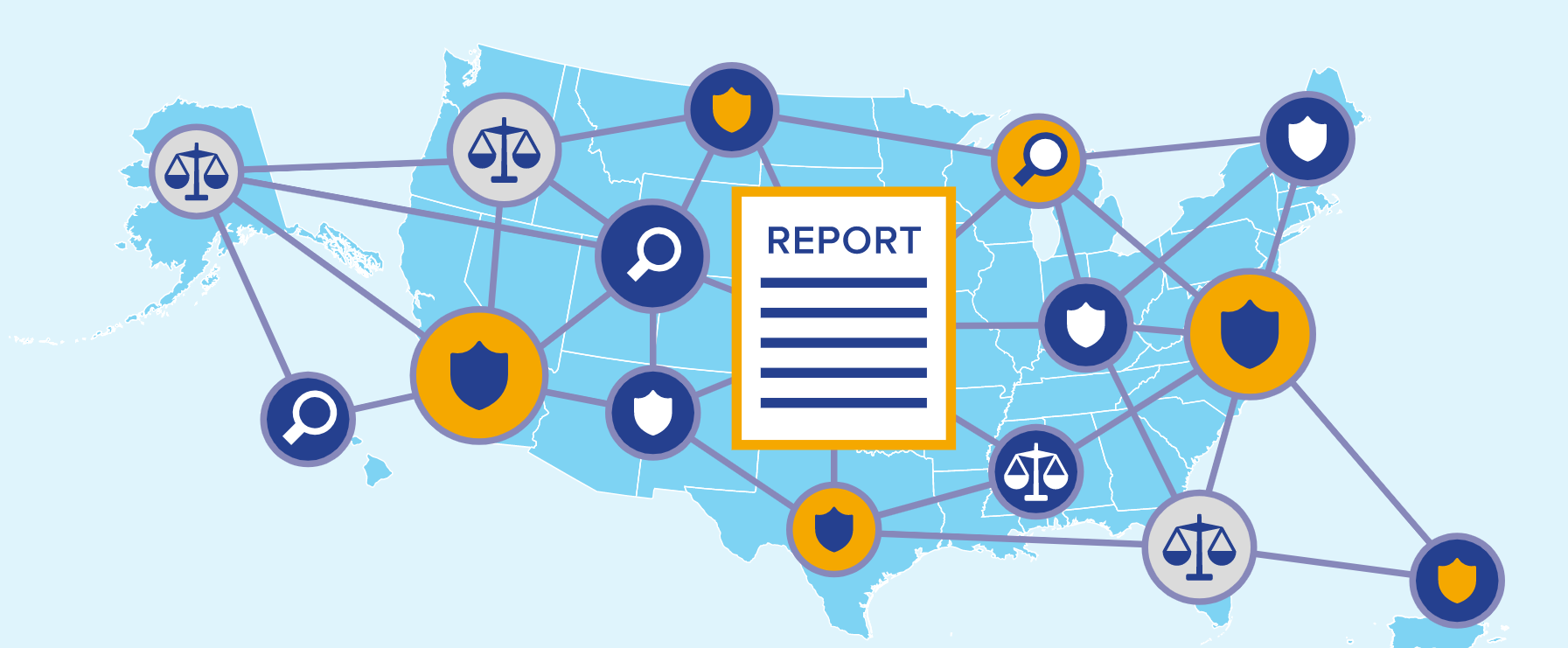
Despite the rise in cryptocurrency popularity, the space is still very much like the wild west for investors.
Between cryptocurrency scams, businesses going under, and ever-changing regulations, there are several ways you can run into trouble with your crypto.
This is especially true if you hold your cryptocurrency on exchanges like Coinbase or other popular players. In fact, according to the Consumer Financial Protection Bureau (CFBP), Coinbase has had over 1,000 complaints filed against it since the start of 2021. Other popular exchanges like Binance have also had a slew of complaints as well.
Millions of people still use cryptocurrency exchanges to invest in cryptocurrency without any hitches. But in the unfortunate event you encounter a problem that causes you to lose money or get scammed altogether, you need to know how to best protect yourself and your assets.
What To Do Before Filing A Cryptocurrency Exchange Complaint
It might be tempting to file a complaint against your cryptocurrency exchange of choice the moment you have an issue with your account. However, there are three steps you should explore first to increase the odds you get help.
Understand Your Coverage
According to the CFPB, the most common reasons for filing complaints against cryptocurrency exchanges relate to:
- Frauds or scams
- Not being able to access funds when promised
- Managing, opening, or closing an account or cryptocurrency wallet
- Unauthorized transactions or other transaction problems
Unfortunately, most of these problems aren’t even close to being covered by your average cryptocurrency exchange.
For example, according to Coinbase’s insurance policy, the exchange carries crime insurance that protects a portion of digital assets from theft and cybersecurity breaches. But it doesn’t “cover any losses resulting from unauthorized access to your personal Coinbase or Coinbase Pro account(s) due to a breach or loss of your credentials.”
Furthermore, while some exchanges do provide FDIC insurance on uninvested cash deposits, the FDIC cannot protect cryptocurrencies. So if a an exchange you’re holding crypto assets with vanishes into thin air one day, your assets could vanish as well.
Despite these limitations, there are still instances where it could make sense to file a complaint against a crypto exchange like when you have account problems or can’t access your funds. Also, it could be worthwhile to seek remediation if you believe an exchange is engaging in illegal activity or charging unauthorized fees.
Contact The Cryptocurrency Exchange
You should always contact a cryptocurrency exchange before filing a complaint. The best way to do this is to search for the company’s customer support page on Google or on the exchange’s website to get in touch with customer support.
Usually, you have to email the exchange or complete a contact form that asks a series of questions about the problem you’re experiencing. Exchanges like Coinbase also have a customer support phone number, but it’s meant for use if you think your account is compromised and you need to disable it.
Try to give as much detail about the problem you’re experiencing, including dates. After you send your email, anticipate waiting up to a few business days to hear back from customer support.
Use Social Media
One common criticism people have about cryptocurrency exchanges is that they have poor customer support. Unlike most banks, you're unlikely to have the option to just call a help hotline to get answers that same day. And depending on the exchange, you may even not even get a response after emailing for support.
As a final step before filing a complaint, try reaching out to the cryptocurrency exchange on social media. This can also be surprisingly effective at getting a problem solved or at least put to rest.
For example, on Coinbase’s Reddit, users regularly post the problems they’re having and the corresponding ticket number for their issues. Coinbase support staff almost always replies to support inquiries and often expedites issues or gives feedback right in the Reddit thread.
Using social media isn’t a guaranteed solution to get faster help from a cryptocurrency exchange. But as a last resort, it’s certainly worth trying.
How To File A Complaint Against A Cryptocurrency Exchange
If you can’t receive adequate support from your cryptocurrency exchange and need to file a complaint, you actually have several options depending on the type of complaint you’re filing.
1. The Consumer Financial Protection Bureau
According to the CFPB website, 98% of consumers who submit a complaint through the CFPB receive a timely response within 15 days from the company in question.
So if you’re still waiting on a response from your cryptocurrency exchange, this is the first option you should try. The CFPB complaint submission process takes five steps:
Step 1 - Choose Your Complaint Type
Start your complaint by stating that it’s regarding "virtual currency."
Step 2 - Select Your Issue
You can file a complaint about seven different issues:
- Confusing or missing disclosures
- Fraud or scams
- Money is not available when promised
- Other service problems (i.e. privacy concerns)
- Other transaction problems (i.e. unauthorized transactions)
- Wrong amount charged or received
- Unexpected or other fees
Step 3 - Explain What Happened
Type out an outline of your case, what you think is fair for remediation, and attach any relevant screenshots. This is an excellent place to include screenshots of your emails to the exchange.
Step 4 - Name The Crypto Exchange
The CFPB asks you if you have already tried to communicate with the cryptocurrency exchange. This is why it’s important to always send an email to customer support first since it demonstrates you’re taking steps to resolve the issue.
Step 5 - State Who The Complaint Is For
If you're filling out a complaint for yourself, you'll input your personal information here. But if you're submitting a complaint on behalf of someone else, you'll want to list all involved parties and can review your complaint before submitting it.
2. The FBI Internet Crime Complaint Center (IC3)
If your account is hacked on a cryptocurrency exchange and someone steals your funds, you can also contact authorities in your area and submit an internet crime claim to the FBI.
This is also the advice Coinbase gives its users. For example, in a Reddit thread where one Coinbase user had Bitcoin stolen from their account, Coinbase suggests reporting the incident to local law enforcement agencies and to submit an internet crime complaint to IC3.
This isn’t filing a complaint against your cryptocurrency exchange directly. But if someone steals your funds, it’s important to report the incident to the relevant authorities. You can always take this step and file a complaint with the CFPB as well.
3. The Federal Trade Commission (FTC)
Another way to report a cryptocurrency exchange is to file a fraud, scam, or bad business practice complaint with the FTC.
Unfortunately, the FTC states it can’t directly resolve your issue. But it shares complaints with over 3,000 law enforcers and uses reports to investigate and potentially bring cases against fraudulent businesses and individuals.

Image credit: ReportFraud.FTC.gov
The FTC complaint form is actually quite encompassing. It includes categories like impersonators, sweepstakes, online shopping, and money-making opportunities.
To submit a claim against a cryptocurrency exchange, you can use the “something else” tab and explain the details of your complaint.
What’s The Best Way To Stay Safe With Your Crypto?
The unfortunate reality is that many cryptocurrency scams and problems with exchanges go unresolved. This happens for a myriad of reasons, ranging from poor customer support to a lack of regulation and protection by government organizations in the space.
So the best action to staying safe as a cryptocurrency investor is to take preventative measures so you never have to file a complaint in the first place. And most of these preventative measures boil down to improving your own security.
For starters, you may want to store your cryptocurrency on a third-party wallet or a hardwallet. Storing all of your cryptocurrency on an exchange is risky because at the end of the day, the exchange owns your private keys, not you.
For digital wallets, Exodus is a popular, beginner-friendly choice that’s also secure. You can also consider a cryptocurrency hardware wallet like Ledger or Trezor to store your cryptocurrency offline.
It’s also important to enable two-factor authentication and whatever security measures a cryptocurrency exchange offers. Even if it’s inconvenient to verify your identity every time you make a transaction, it’s worth taking the extra time to be secure rather than risk getting hacked.
Final Thoughts
Hopefully, you never have to file a complaint against a cryptocurrency exchange. This space is still very much in its infancy. And unfortunately, there aren’t many protective measures in place to help investors should they run into serious problems.
Your best solution is to play some defense and increase your security as much as possible. Additionally, if you’re set on holding your cryptocurrency on an exchange rather than a third-party wallet or hard wallet, consider spreading out your assets across multiple platforms.

Tom Blake is a personal finance writer with a passion for making money online, cryptocurrency and NFTs, investing, and the gig economy.
